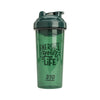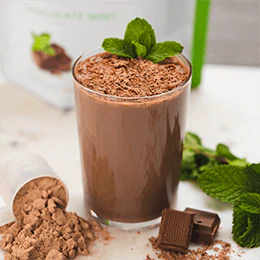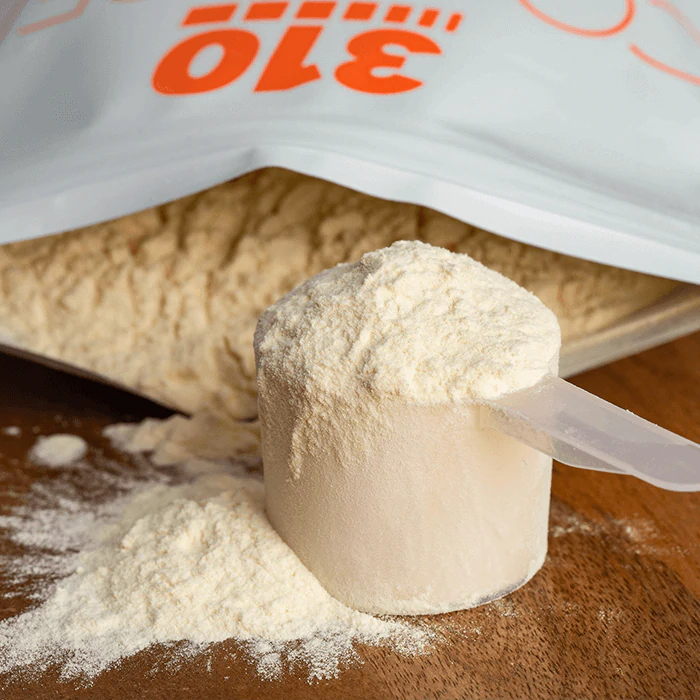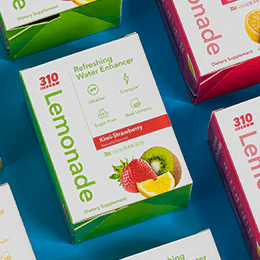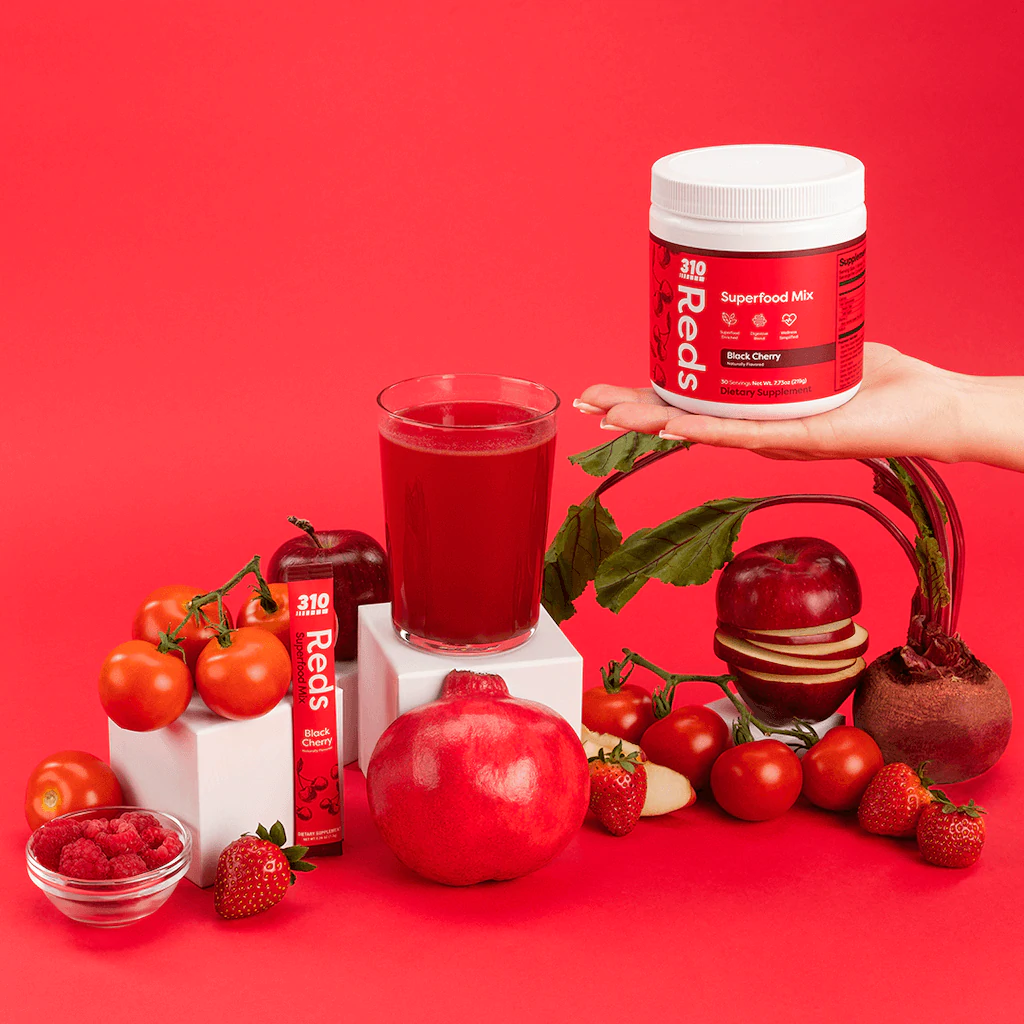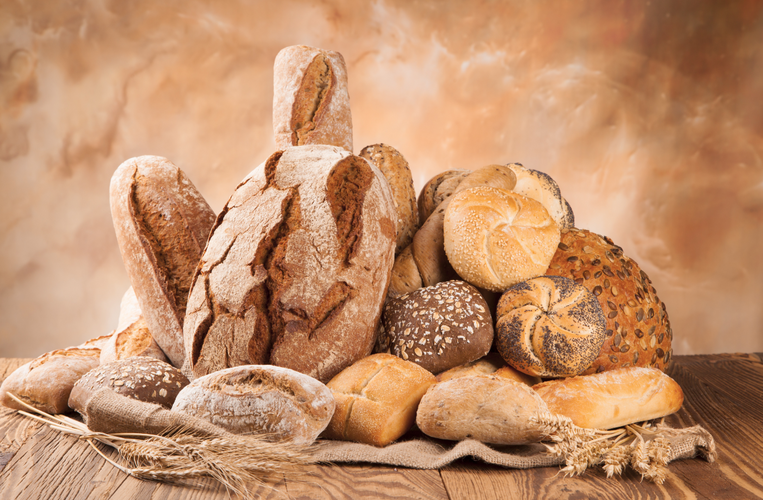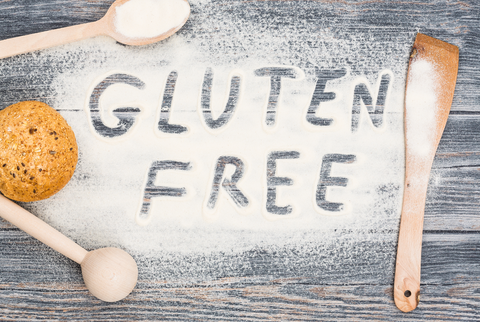Scan the aisles of many grocery stores and you’ll inevitably see lots of options for gluten-free foods… including gluten-free bread, crackers, baked goods and more. Though going “gluten-free” is a very real need for some people, others have taken to this dietary plan simply because it’s quite trendy to do so right now – and they think they’re doing something good for their bodies and their health.
In this article, we’ll examine the difference between gluten-free vs. celiac disease. Though only a small portion of the population suffers from celiac disease, a much larger amount of people have a "sensitivity" to gluten. And then there are people that aren’t sensitive to gluten, but have removed it from their diets anyway.
So, where do you fall on the spectrum? Should you eat gluten-free foods for a healthy lifestyle, or is that counteractive to your health? Read on to learn more…
Gluten-Free vs. Celiac Disease
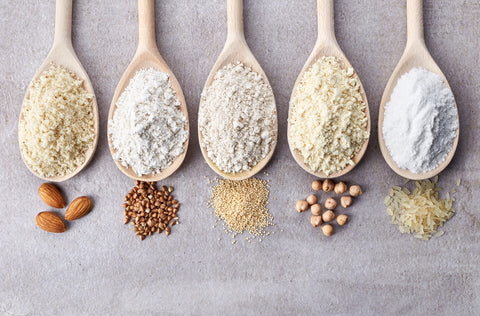
First, let’s start with a commonly asked question… Is celiac disease and gluten intolerance the same thing? The answer is no, and here’s why...
Starting with gluten intolerance, also known as gluten sensitivity or non-celiac gluten sensitivity, this condition is not very well-defined in the medical community. People who experience some negative symptoms after consuming gluten may be directed by a doctor to consume gluten-free foods to see if there is relief.
However, the major difference is that, contrary to celiac disease, gluten intolerance or gluten sensitivity do not cause damage to the lining of the small intestine. Therefore, there is no measurable immune response or intestinal damage.
In contrast, those with an official celiac disease diagnosis actually require a gluten-free diet. There are many people that self-diagnose, claiming they are gluten-intolerant. However, a self-diagnosis is not the same as being diagnosed with celiac disease by a medical professional.
So, what is celiac disease?
Celiac disease is often hereditary and symptoms can, but don't always, begin at an early age. Symptoms of this autoimmune disease are triggered by the consumption of gluten – which is a protein found in wheat, barley, and rye. Gluten can damage the finger-like “villi” in the intestines that absorb nutrients, and due to this, celiac individuals can ultimately suffer digestive issues, absorption problems, and more.
In addition, many individuals with celiac disease have also shown symptoms such as iron deficiency, osteoporosis, and more.
Symptoms of Celiac Disease
Though everyone’s body is different, here are some of the common documented symptoms of celiac disease:
- Abdominal discomfort including bloating, excessive flatulence, and diarrhea
- Iron deficiency, which ultimately could lead to anemia
- Blisters and itchy skin, including ulcers in the mouth as well as tooth enamel damage
- Nervous system damage, which could lead to tingling and numbness of the hands and feet
- Joint pain, cognitive impairment, and loss of balance as well as bone density
- Vomiting, weight loss or weight gain, and acid reflux
- In rare cases, blood could be present in the stool
Is There a Cure for Celiac Disease?
Currently, there is no cure for celiac disease except for abstaining from foods containing gluten; However, new treatments are being tested, and there may be new possibilities for those who suffer with it in the future.
Until then, those with celiac disease have to be very careful about the foods they consume…which can unfortunately be very tricky, even in light of so many companies now offering gluten-free options. The trouble is that the smallest bit of gluten, even from cross-contamination, can cause symptoms, and gluten can actually be in many foods you wouldn’t expect…
Gluten-Free Foods? Not So Fast!
Here are some foods that you might not expect to contain gluten…
- Oatmeal: Some oatmeal can get contaminated by nearby wheat fields…. while other types might be flavored with caramel coloring that is wheat-bearing.
- Soy Sauce: Some soy sauce is made with fermented wheat, so look for the gluten-free label when purchasing, as some brands are gluten-free.
- Pickles: Some pickles are made with malt vinegar, which comes from ale – and ale is made from wheat.
- French Fries: Some French fries are made with batter that contains wheat flower.
- Whole grains: Couscous, barley, smelt, and kamut all contain gluten. However, buckwheat, quinoa, flax, millet, and sorghum are gluten-free.
- Salad Dressing: Any salad dressing that contains malt vinegar, soy, or flour contains gluten.
- Some Meat Substitutes: Some vegetarian and vegan meats are made with seitan, which is wheat gluten.
- Energy Bars: Some energy bars are made with wheat and oats, which might not be gluten-free.
- Potato Chips: Any potato chip containing malt vinegar (salt and vinegar chips) or wheat starch is not gluten-free.
- Soups: Some but not all soups contain wheat in some form.
- Gravy: Any gravy that contains flour is not good for people with celiac disease. However, gravy made with cornstarch is fine.
- Beef Jerky: Some beef jerky is made with MSG, loads of salt and gluten. There are now jerky products on the market that are organic and gluten-free.
- Alcohol: Not only does beer and ale contain gluten, so does whiskey, rye whiskey, and bourbon. However, if you're gluten intolerant, you can drink wine, cider, tequila, and rum.
Do You Need To Be Gluten-Free?
Honestly, many diet restrictions, unless mandated by a doctor, can be taken to the extreme. If you’re working on eating a healthier diet, that’s great! But, eliminating gluten-containing foods doesn’t automatically mean your diet is healthier. At the end of the day, eating a nutrient-dense, balanced diet is what’s most important, and adopting healthier lifestyle choices is key to good physical health as well as mental health.
This being said, gluten-free as a health goal should not be your focus… Instead, the focus should be on consuming as many fresh, whole foods as possible. Instead of completely cutting out gluten, try focusing on more variety of complex carbs into your diet, like sweet potato, brown rice, oats, etc. In addition, if going gluten-free is another way to help you eat more whole foods, by avoiding lots of processed and sugary foods, then that can be great.
However, if you find that you’ve replaced your regular snack habit with gluten-free snacks instead, this might just be counteractive. Gluten-free replacements can often contain more fat and calories than gluten-containing products. So, for someone who is celiac and is looking for a replacement, they are a great alternative. However, for others who are looking for "healthier" products, this definitely is not always the case.
Gluten-Free vs. Celiac: Don’t Self-Diagnose
Anytime you have questions about your diet, it's extremely important to go to your doctor and make sure you’re properly diagnosed and screened for celiac disease. It’s too easy these days to Google symptoms and then jump to a conclusion. Instead of self-diagnosing, always check with your doctor to get a professional opinion.
Eating a gluten-free diet, if you don’t have celiac disease is a personal decision. Gluten can wreak havoc on your body if you do have celiac disease, so if you’re experiencing symptoms, don’t wait. Get checked immediately. Gluten-free is a lifestyle choice for some, but an absolute must for celiac sufferers!
Want more articles to help you eat clean and live a healthier lifestyle? Check out additional nutritionist-approved health articles and recipes on the 310 Blog.
Sources:
https://www.sciencedaily.com/releases/2019/10/191022080723.htm
https://celiac.org/about-celiac-disease/what-is-celiac-disease/
https://www.cedars-sinai.org/blog/gluten-free-good-idea.html

